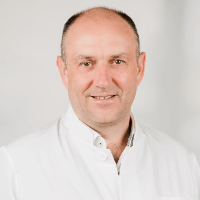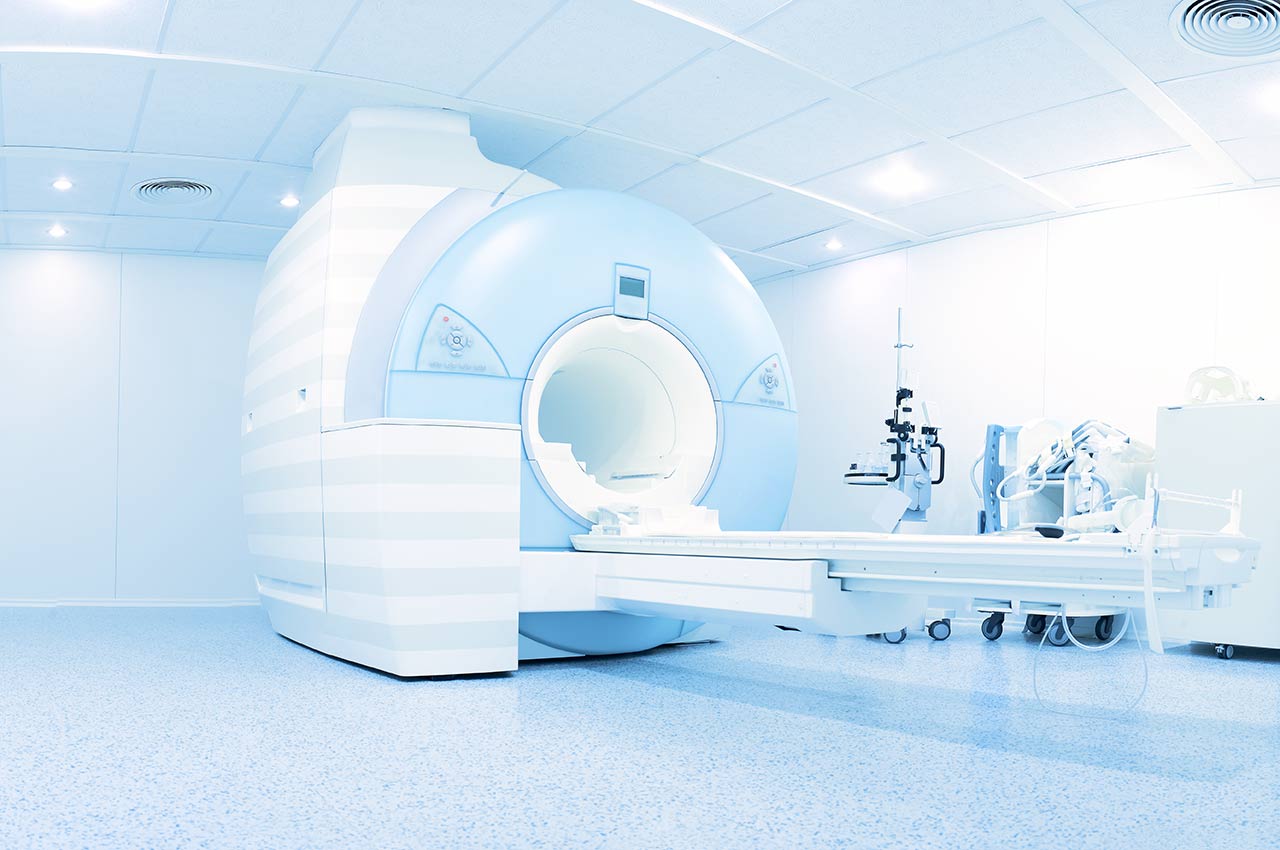
About the Department of Adult and Pediatric Epileptology at Evangelical Hospital Queen Elizabeth Herzberge Berlin
The Department of Adult and Pediatric Epileptology at the Evangelical Hospital Queen Elizabeth Herzberge Berlin offers the full range of services for the diagnostics and treatment of epilepsy in patients of various age groups. The department's doctors have rich experience and the very latest therapy concepts in their arsenal, which allow them to achieve excellent treatment results. The primary goal is to eliminate the symptoms of epilepsy – seizures. The department has state-of-the-art equipment for the accurate diagnostics of the specific type of the pathology, which largely determines the success of further therapeutic measures. The department also offers modern therapeutic options, including neurological rehabilitation procedures. Medical care is provided on both an inpatient and outpatient basis. The department's doctors have unique competencies in the field of medical care for the patients with epilepsy, thanks to which they develop individual treatment regimens, with the help of which the patients forget about their disease forever and have the opportunity to live their full life.
The department is headed by Prof. Dr. med. Martin Holtkamp. Thanks to his successful clinical activities in the best German hospitals, in particular at the Charite University Hospital Berlin, the doctor has gained invaluable experience and an excellent reputation in the area of his specialization at the national and international levels.
The department is one of the few medical facilities in Germany that offer the full range of medical services to people suffering from epilepsy. A feature of the medical facility is the fact that the Head Physician of the department and other doctors are engaged not only in the treatment of their patients, but also in research activities aimed at developing innovative methods for diagnosing and treating epilepsy. This is a great advantage for the patients and gives them an access to the treatment with innovative drugs and methods, which have no analogues in other European countries. The department also provides diagnostics and counseling for the first symptoms of the disease and differential diagnostics for unclear clinical symptoms (dissociative seizures, syncopes, etc.). The department's work is based on a comprehensive treatment concept aimed at raising the awareness of the patients and their relatives in the fight against epilepsy.
The department admits patients of all age groups, since epilepsy can develop at any age. In the treatment of adults and children, the primary task of the doctors is comprehensive diagnostics, during which they will have to find out whether the patient really suffers from epilepsy, or whether convulsive seizures develop due to another pathological condition. Should epilepsy be confirmed, it will be necessary to determine its type, frequency and intensity of convulsive seizures. First of all, the attending physician studies the patient's medical history and carries out a clinical examination, after which he uses diagnostic methods, such as long-term video-EEG monitoring, laboratory tests and imaging tests (most often MRI). The department's specialists also quite often resort to neuropsychological testing.
As for the treatment methods for epilepsy in adults, the key method is drug therapy, which can be complemented by occupational therapy, physiotherapy, exercise therapy, art therapy and psychological care. It is also extremely important for the department's doctors that the patient be reintegrated into his professional life, so they take all the necessary measures to achieve this goal. In most cases, the specialists prescribe a monotherapy with a single antiepileptic drug, but in some cases, they combine several drugs. As a rule, the first time after the prescription of drug therapy, the patient stays in the hospital so that the doctors can assess the effect of the drug and the success of therapy. With satisfactory results, the treatment will continue on an outpatient basis. The patients with epilepsy require a long course of drug therapy; it lasts 2-3 years, and in especially complex cases even more. Unfortunately, conservative treatment with antiepileptic drugs sometimes does not give positive dynamics, and the department's doctors have to resort to other therapeutic procedures, such as vagus nerve stimulation, deep brain stimulation and neurosurgical interventions.
The department's team of doctors has unique competencies in providing medical care to the patients with epilepsy, so the specialists deal with the treatment of patients who have epilepsy combined with other pathologies. The diagnostic stage involves the following procedures: video-EEG monitoring, laboratory tests, cerebrospinal fluid analysis, genetic tests and magnetic resonance imaging. The patients with congenital pathologies and disability usually have a severe course of epilepsy with frequent and dangerous seizures. In addition, such patients are often resistant to classical antiepileptic drugs, which forces the doctors to resort to combination drug therapy, vagus nerve stimulation, or neurosurgical interventions.
An important part of the department's work is the treatment of epilepsy in children between the ages of 1 and 18. The doctors strive to detect epilepsy as early as possible, track and analyze the first seizures and, based on all the data obtained, determine the best treatment tactics that will help improve the child's condition and prevent the development of the pathology-related complications. During the diagnostics, the specialists in pediatric epileptology use laboratory tests, electroencephalography and imaging tests (MRI, PET, SPECT). In some clinical cases, it is also necessary to perform genetic tests, neurometabolic diagnostics and examinations of the internal organs. Epilepsy in children is often combined with developmental and behavioral disorders, so pediatric neurologists and neuropsychologists are also involved in the therapeutic process. The therapeutic options for epilepsy in children include drug therapy, a ketogenic diet, vagus nerve stimulation, and neurosurgical interventions. The department also offers special epilepsy self-management training programs, such as FAMOSES and MARSMOMENTE.
The department's main clinical activities include:
- Diagnostic options
- Medical history analysis and clinical examination
- Laboratory tests, including neurometabolic and genetic tests
- Long-term video-EEG monitoring and classical EEG
- Neuropsychological diagnostics
- Neurological assessment of the child's development
- Imaging tests: MRI, including functional one, PET and SPECT
- Therapeutic options
- Drug therapy with antiepileptic drugs, which is the main treatment for epilepsy in adults and children
- Ketogenic diet in children
- Vagus nerve stimulation in adults and children
- Deep brain stimulation in adults
- Neurosurgical interventions in adults and children
- Auxiliary treatment methods: occupational therapy, physiotherapy, therapeutic exercises, art therapy, speech therapy and psychological care
- Other medical services
Curriculum vitae
Professional Career
- 1996 Internship, Department of Neurology, Friedrichshain Hospital Berlin.
- 1996 - 1997 Internship, Department of Neurology, University Hospital Charite Berlin.
- 1998 Doctoral thesis defense, Institute of the History of Medicine, Free University of Berlin. Subject: "Continuity of the concept of inferiority in adolescent and social psychiatry".
- 1997 - 2006 Assistant Lecturer, Department of Neurology, University Hospital Charite Berlin.
- 2005 Habilitation, University Hospital Charite Berlin. Subject: "Refractory cases of epileptic status: predictors, clinical forms, therapy, and pathophysiological consequences''.
- Since 2005 Head of the Epileptic Outpatient Clinic at the University Hospital Charite Berlin, Campus Mitte.
- Since 2005 Head of the Working Group on Clinical and Experimental Epileptology, University Hospital Charite Berlin.
- Since 2005 Member of the EFNS Task Force "Management Status epilepticus".
- 2007 - 2011 Head of the Section of Clinical Electroencephalography, University Hospital Charite Berlin.
- Since 2007 Senior Physician, Department of Neurology, University Hospital Charite Berlin.
- Since 2008 Head of joint Epileptic Outpatient Clinics at the University Hospital Charite Berlin (Campus Mitte, Campus Virchow and Campus Benjamin Franklin).
- Since 2012 Head of the Department of Adult and Pediatric Epileptology at the Evangelical Hospital Queen Elizabeth Herzberge Berlin.
Memberships in Professional Societies
- German Society of Epileptology.
- German Society of Clinical Neurophysiology.
Awards
- Friedrich von Bodelschwingh Professorial Award, Department of Neurology, University Hospital Charite Berlin.
Photo of the doctor: (c) Evangelisches Krankenhaus Königin Elisabeth Herzberge




